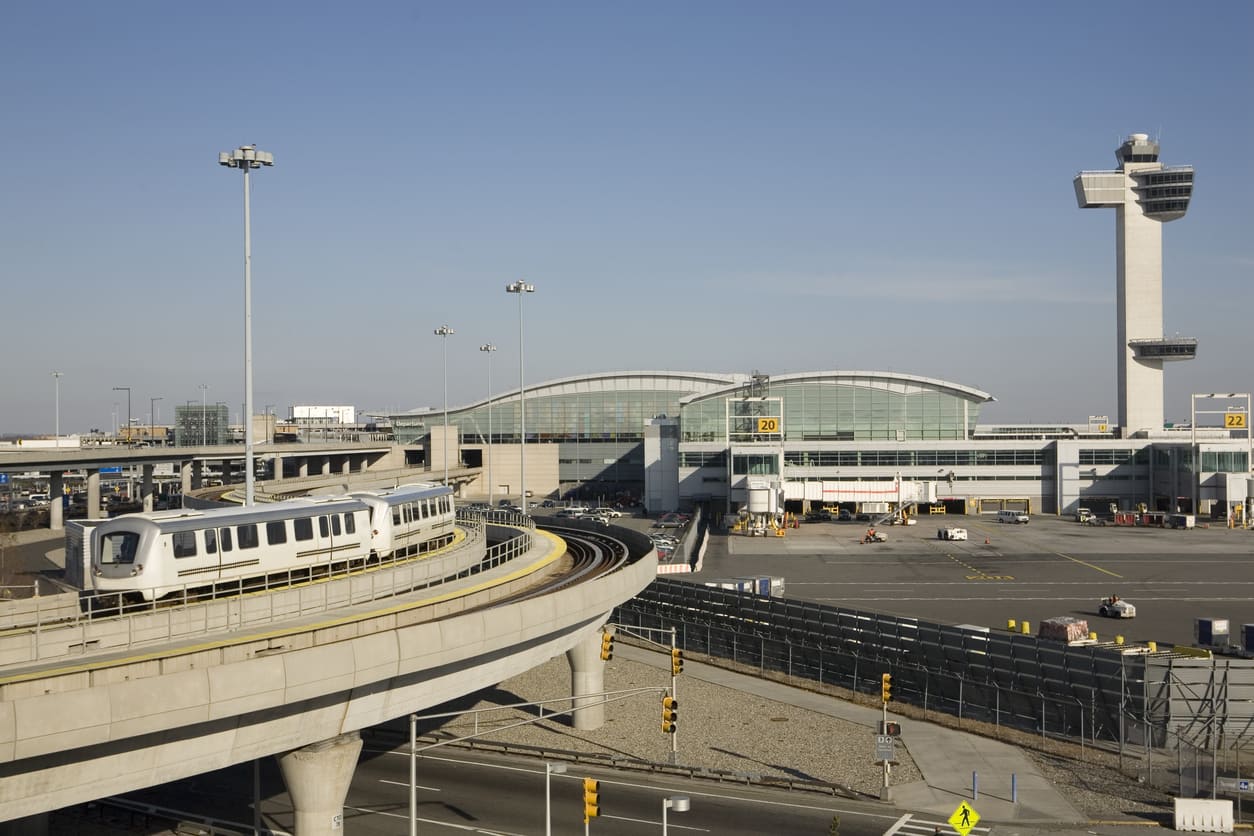| John F. Kennedy International Airport |
|---|
| Country: | United States |
| State: | New York |
| IATA Code: | JFK |
| Elevation: | 4m |
| Current time: |
15:23:27 Mon, 4 Aug 2025
|
John F. Kennedy International Airport (JFK), located in Queens, New York City, is one of the busiest international airports in the United States. Opened in 1948, JFK serves as a major gateway for global travel, connecting millions of passengers annually to destinations worldwide.
John F. Kennedy International Airport: A Gateway to the World
John F. Kennedy International Airport (JFK), located in Queens, New York City, opened in 1948 as Idlewild Airport. It was later renamed in 1963 to honor President John F. Kennedy. Initially built to accommodate the growing demands of air travel after World War II, JFK quickly became one of the most important airports in the United States. Over the decades, it has expanded and modernized to meet the increasing needs of international and domestic passengers. Today, JFK is one of the busiest and most iconic airports in the world, known for its diverse terminals, advanced facilities, and significant role in global connectivity.

Strategic Location and Key Nearby Areas
JFK Airport is strategically located in Queens, about 15 miles from Manhattan. Its position makes it a crucial hub for travelers heading to and from New York City. The airport also serves nearby areas, including Brooklyn, Long Island, and The Bronx, ensuring accessibility for millions of residents and visitors. With its extensive network of airlines and routes, JFK connects New York to major cities across the globe, offering both domestic and international flights.
Importance and Global Significance
JFK is more than just an airport; it is a global gateway that facilitates cultural exchange and economic development. As a hub for major airlines such as Delta Air Lines, JetBlue Airways, and American Airlines, the airport connects passengers to over 100 countries. It is also a crucial entry point for tourists, business travelers, and international cargo, reinforcing New York City's status as a global financial and cultural capital.
Economic and Cultural Impact
The economic impact of JFK Airport is immense. It generates billions of dollars annually and provides employment to tens of thousands of people in industries such as aviation, retail, hospitality, and logistics. The airport's operations support the local economy and contribute significantly to New York's tourism industry. Culturally, JFK serves as a gateway to the world, welcoming millions of visitors who come to experience the energy and diversity of New York City. The airport also embodies the city's spirit of innovation, with ongoing projects aimed at modernizing its terminals and enhancing passenger experiences.
JFK Airport stands as a symbol of progress and connectivity. From its historical roots to its current status as a modern aviation hub, it continues to play a pivotal role in shaping New York's identity as a global city. Whether through its economic contributions or its role in connecting people and cultures, JFK remains an indispensable part of New York's infrastructure and its connection to the world.
Nearby Airports
- LaGuardia Airport, LGA (About 17 km)
- Republic Airport, FRG (About 32 km)
- Newark Liberty International Airport, EWR (About 33 km)
- Teterboro Airport, TEB (About 33 km)
- Westchester County Airport, HPN (About 48 km)